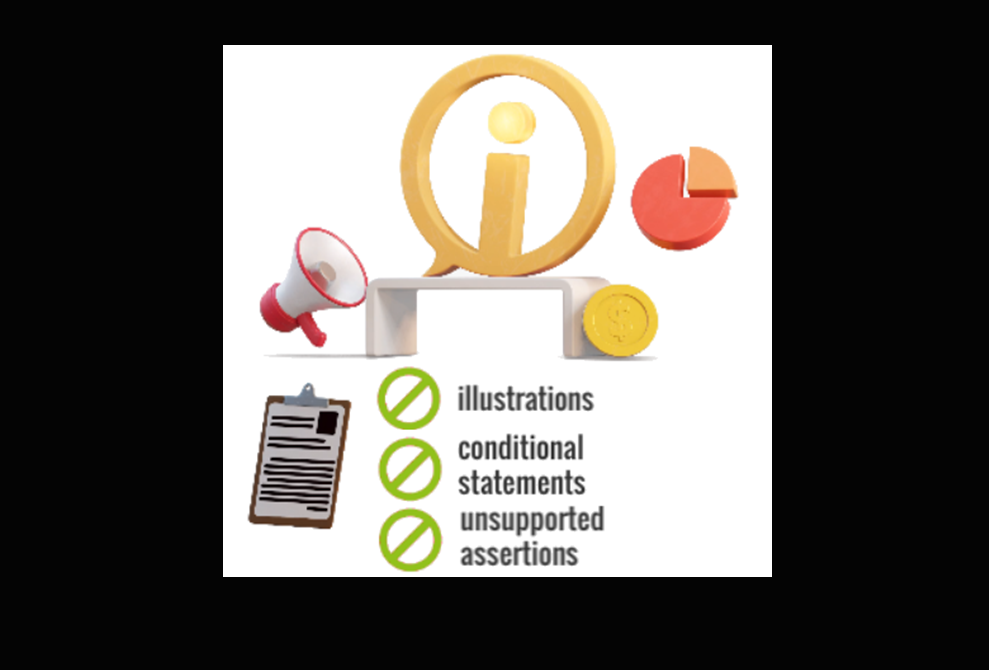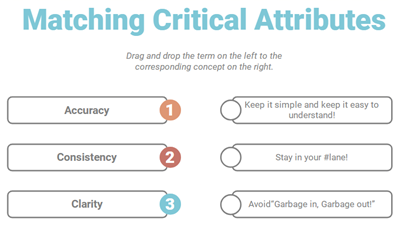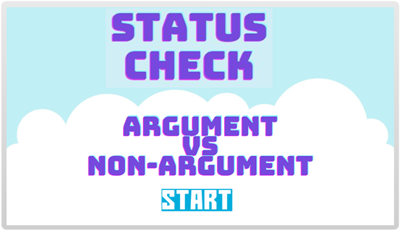Let's Get Critical
 What is meant by "critical" here? It is common to understand critical as "to look down upon" or "to make fun of someone or something."
You may have heard the phrase "don't be so critical of me" in your house or maybe in a relationship? In ordinary language, "critical" can denote acting in a judgmental way.
But within philosophy, critical has a different meaning. To be critical means "to analyze" or "to investigate." Taking the time to engage an argument critically, in this sense,
reflects intellectual humility. Critical thought can foster a review of
our fundamental (and often unchallenged) tenets. At the same time, critical thought can also while open our horizons to new ideas.
What is meant by "critical" here? It is common to understand critical as "to look down upon" or "to make fun of someone or something."
You may have heard the phrase "don't be so critical of me" in your house or maybe in a relationship? In ordinary language, "critical" can denote acting in a judgmental way.
But within philosophy, critical has a different meaning. To be critical means "to analyze" or "to investigate." Taking the time to engage an argument critically, in this sense,
reflects intellectual humility. Critical thought can foster a review of
our fundamental (and often unchallenged) tenets. At the same time, critical thought can also while open our horizons to new ideas.
Five Attributes
Given the importance as noted above, how can we know when we are practicing critical thinking? One way is to consider the attributes of critical thinking. While the presence of the attributes does not guarantee that critical thinking is present, critical thinking can not occur without the presence of the attribute. Think of this way: oxygen is necessary for fire to occur but the presence of oxygen (thankfully) does not guarantee the presence of fire!Here are five attributes that mark the potential presence of critical thinking:Obtaining Critical Flow
Another way of measuring how deeply you have engaged an idea is expressed through the so-called disagreement hierarchy (DH):
As you glance at the DH graphic, note that the lower the stage (or number assigned) the lower the critical thought present within the disagreement. To progress to the higher stages, you need to focus on how well the evidence presented supported the conclusion of the argument. You may be asking what the difference is between a partial and complete refutation. It is possible to refute one specific argument but not the point or position articulated by the argument. In an applied ethics discussion, we could discuss an argument supporting capital punishment based on cost efficiency. But an opponent could argue that cost efficiency does not refute (or even address) the central moral questions within the capital punishment issue. You might win the argument but not the day!
Example: Getting Critical about social media
One place in which critical thought is needed more abundantly is social media in general. Let's play a quick version of the "never have I ever" game:- Never have I ever accepted a claim, concept, or argument based solely on the social media platform on which I found a claim or argument.
- Never have I ever rejected a claim, concept, or argument based solely on the social media platform on which I found a claim or argument.
- Never have I ever accepted a claim, practice, or argument as true simply because the content was being pushed by a successful influencer.
- Never have I ever accepted a claim, practice, or argument as true simply based on the number of likes or share accumulated by the claim, practice, or argument.
- Never have I ever resorted to name-calling in a thread or social media platform as a way of engaging an idea, claim, or position that did not resonate (vibe) with me.

What is an Argument?
When we critically reflect upon a belief, we seek to understand what the belief asserts, and how well the belief itself is supported. In philosophy, the point and the support offered are known as an argument. The most basic building block of an argument is the statement. A statement is an assertion that has either a true or false value. The point or the purpose of an argument is referred to as the conclusion. The statements used to support the argument are known as premises.
Tips for Finding Conclusions
If you have trouble isolating the meaning of an argument, try isolating the conclusion first. Luckily there are conclusion indicators and premise indicators that can assist you in getting the author's point.
Non-Arguments
There are forms of reporting information that are like arguments but, for various reasons, differ from arguments. Reports, for example, might appear to be arguments but they typically are meant to persuade rather than to reason in support of a position. One of the more frequently encountered non-arguments forms is the explanation.
Other non-argument forms include:

Congratulations!
You have reached the end of Module 1. Please return to our course, and complete the short quiz on critical thinking.


